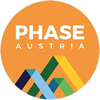Which strategies do you implement to prevent ABUSE OF AUTHORITY?
Our implementing organisation PHASE Nepal implements a set of rules of conduct and guidelines on different issues regarding the abuse of authority including corruption, protection of children and vulnerable adults, conflict management, gender and social inclusion, as well as good governance and acquisition guidelines. These systems and guidelines are strictly followed, and non-compliance comes with severe disciplinary measures (zero-tolerance policy). For further information, please see the PHASE Nepal organisational profile.
What about EDUCATION in Nepal?
The new education system is based on an integrated school system on several levels. Eight years of Basic School cover Nepali, English, Mathematics, Social Studies and Science, with added health and environmental studies in the higher levels. After the 8th grade, there is the “Lower Level Secondary Exam”. The Basic School leads to a four-level Secondary School (grades 9 to 12); after the tenth grade, there is the national “Secondary Education Examination” (SEE) (centralised exams and grading), after two more years, the “Grade 12 High School Examination” allows access to training colleges and universities.
One of the problems regarding school access is the fact that – in particular in remote regions – not all communities have secondary schools. To continue their education, children often have to go to boarding school, which many families cannot afford. In Nepal, there is a huge private school market, with private schools not necessarily offering better services than government schools, but still benefiting from a better reputation. Therefore, many families spend a lot on tuition. This in turn means that government schools have little motivation to improve their standards because in particular in cities, mainly children from disadvantaged backgrounds go to government schools whose parents have no lobby and cannot exert pressure to improve things. In rural areas, there is often a lack of awareness of the importance of education, and far too many children still leave school early or don’t even enrol in school.
Does PHASE invest in FURTHER TRAINING for its staff?
PHASE Nepal emphasizes the importance of regular further training and invests approx. 5 % of its annual budget in trainings and further education. Twice a year, all employees are gathered in Kathmandu for several days of further training. In addition, employees are offered the opportunity to take part in special trainings, for instance in family planning implants. As far as possible, government staff are included in these trainings. In the health programme, our partner organisation PHASE Worldwide organises a GP volunteer programme: British GPs visit the health posts for one or several weeks, monitor PHASE staff, provide feedback and further training on specific issues.
How do the SALARIES of Nepali employees compare to other organisations?
Most PHASE employees are qualified young professionals. The salaries with PHASE Nepal is slightly below average as compared to similar positions with NGOs in Nepal, and compared to government employees, our staff do not earn significantly more (however, government posts are more or less indefinite, while we can only offer fixed-term project employment to our staff). This means that often PHASE “loses” staff to other NGOs who offer better salaries, or to the government. This is a dynamic that we regard as part of our contribution to improving services in remote regions, as these former PHASE employees take their knowledge and the standards of PHASE Nepal and apply them in their new positions.
What does the HEALTHCARE SYSTEM look like in Nepal?
The public primary healthcare system in Nepal – which is the field PHASE is working in – is organised around Primary Healthcare Centers that are managed by local health management committees. In theory, several government health workers should be posted in each health post, supported by FCHVs, Female Community Health Volunteers. These are local women who function as first point of contact and help to mobilise the community for e.g. vaccination campaigns. One of the problems, in particular in remote villages, is absenteeism; sometimes government workers simply do not show up for work over months or weeks. What follows is that local communities are not used to there being a continuous health service and therefore turn to other providers (traditional healers, private pharmacies). Less demand then leads to even more absenteeism.
Another problem is the lack of knowledge of local governments and management committees, for instance in medicine acquisition, which can mean that essential medicines are unavailable for months.
PHASE addresses all these issues: By recruiting additional well-trained and motivated (and supervised) staff as well as providing additional medicines and material, and by supporting purchase; by motivating and training the oversight committees; and by a focus on outreach, with health workers actively looking for patients in door-to-door visits and for instance motivating pregnant women to come for antenatal check-ups.
Are there strategies regarding CORRUPTION?
As in many countries in the Global South, corruption is an issue in Nepal, even though there is a strong official stance against it (in the form of the Commission for the Investigation of Abuse of Authority – CIAA). PHASE implements a zero tolerance policy and transparent recruitment processes in order to avoid nepotism. A clear and transparent organisational policy regarding corruption also provides effective protection for staff in the project communities, who can quote these policies in case they come under pressure (from politicians, families, …).
In addition, PHASE Nepal is audited annually by an independent auditor; individual projects are also often audited by independent agencies (e.g. DFID, EKFS).
PHASE projects also include Public Audits in the project communities: at least once a year, PHASE staff inform the local public about project activities and spent funds in order to achieve transparency and provide an opportunity for the project communities to verify the use of funds.
Where do PHASE Austria’s FUNDS come from?
So far, PHASE Austria has generated its funds from different sources: individual donations, project funding by public agencies (e.g. City of Vienna, Federal Ministry of Sports, Austrian Development Agency) and foundations (e.g. EKFS, NAK Humanitas), and a small part comes from income from events.
How does PHASE choose the PROJECT COMMUNITIES?
PHASE has clear criteria for choosing project communities. The organisation is committed to working in particularly poor and disadvantaged regions and communities where lack of access and infrastructure mean that working there is very challenging, and only a few NGOs are active. PHASE also aims to keep logistics expenses low by creating local project clusters to save on transport and supervision cost.
Further criteria are the willingness of local authorities and the local community to contribute and – as always – our financial resources.
What are DONATIONS used for?
PHASE Austria aims to use its funds efficiently and economically. Since 2007, our work including fundraising and project management has been voluntary; until now, we do not have an office or other infrastructure. Necessary costs like the annual audit we need so donations can be tax deducted, and for the “Spendengütesiegel” (certification of efficient use of donations) have long been paid directly by the board. For our website and folder design, we have found pro bono help, which means that nearly all of our funds directly benefit the projects in Nepal. In 2018, less than 2 % of our total expenditure was admin and fundraising costs, more than 98 % of our funds were spent for projects in Nepal.
Can I work for PHASE as a VOLUNTEER?
We are often asked whether we also send volunteers to Nepal. Our answer is: well, no, but … In principle, PHASE is critical of the concept of volunteering, as it often is more about the personal fulfilment of (Western) volunteers than about the sustainable support of projects. We therefore think that employing Nepali staff is preferable for several reasons: linguistic skills, the role model function, cultural competence and the creation of incomes for qualified and committed young people in the country are some of them. However, our partner organisation PHASE Worldwide has been running a successful mentoring pkrogramme with British GPs for years, with doctors visiting health posts for one or several weeks, monitoring the PHASE staff at work and providing targeted training. PHASE Nepal has also received support from other experts who helped its organisational development (e.g. accounting systems, organisational consulting).
For further information and a critical appraisal of international volunteering, see for instance the organisation Learning Service.
In Austria, on the other hand, we are happy to offer opportunities to help with our work, in fundraising, communication, event organisation etc.!

